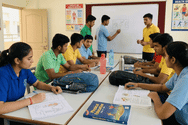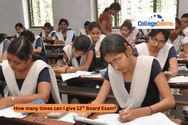
Never Miss an Exam Update
Security has always been a crucial aspect of international relations, but in the contemporary world, its meaning has expanded beyond military concerns. Chapter 5 of CBSE Class 12 Political Science, Security in the Contemporary World, explores the evolving nature of security, highlighting both traditional and non-traditional threats that impact nations and global stability. Understanding these concepts is essential for analyzing how countries protect their sovereignty, respond to global crises, and maintain peace in an interconnected world. Revising complex subjects becomes easier through important questions and responses which enable students to understand chapter themes better. The exam questions focus on understanding traditional versus non-traditional threats and military power's function and the effectiveness of UN-type organizations for conflict management. Students can refer to answers which illustrate how disarmament operations along with arms control arrangements and national confidence-building work between states. This chapter devotes ample attention to evaluate non-traditional security hazards including terrorism together with environmental damage and health emergencies and digital attacks. The discussion focuses on the security issues related to climate change together with COVID-19 global health impacts and human security advancements that place individual welfare ahead of state protection. Study analyzes how contemporary policies are affected by the secure foundations of economics and food production as well as safe energy systems.
When students use these essential questions together with their corresponding answers they will gain more extensive knowledge about modern nation-state security concerns. These questions provide assistance for exam preparation while promoting analytical skills related to international collaboration methods and policy development in security threat resolution. Students who master this chapter gain capability to conduct examinations of real security issues which affect peacekeeping efforts and stability alongside international relations.Prepare thoroughly with the most important questions of CBSE Class 12th Political Science Chapter 5 - Security in the Contemporary World. You can first cover the CBSE Class 12th Political Science syllabus to understand the key topics and then start solving the CBSE Class 12th Political Science Chapter 5 - Security in the Contemporary World Important Question to get a better understanding of your preparation level. Start practicing now.































